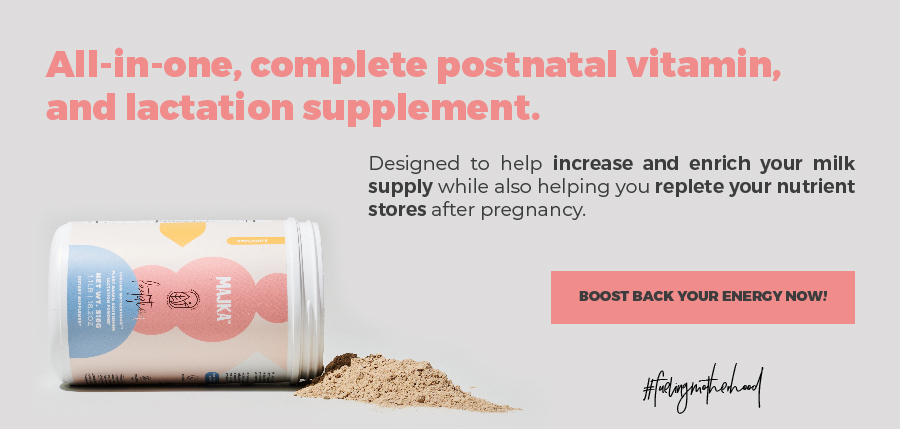
How to know if my baby is constipated and what to do about it
Babies tend to cry, strain, or get a red face while pooping. You may think that your baby is constipated or having related issues. Keep in mind that as your child is growing and developing and so is his/her bowel movement and digestive system. It’s common for babies to have trouble while pooping, and doesn’t necessarily mean that they are constipated.
In the following, we will tell you about constipation in babies and how to distinguish it from regular pooping.
How can I know if my baby is constipated?
Each baby is different, therefore each baby’s stool will be different.
The important thing to keep an eye on is if your newborn is eating/gaining enough weight and is healthy and happy!
Some information tells us that for the first 6 weeks of age breastfed babies tend to poop at least 3 times a day. Some babies poop after each meal! After the initial 6 weeks of age, your baby may poop less often (as low as once a day).
It is normal to see change in your baby’s bowel movements and stool consistency when there are changes in his/her feeding (if the mom is changing her diet while breastfeeding, adding formula to the routine, or changing the formula´s brand and starting solids).
Here are some of the symptoms that may indicate that your baby is constipated:
- Less stool than the usual pattern (and his/her feeding hasn’t changed)
- Your baby seems extra uncomfortable while passing a stool or straining more than usual
- Bloated or swollen belly
- Your baby seems in pain while pooping
- Spitting up more often
- Clenching buttocks
- Stools looking like: small, hard pebbles, or like a large, round golf ball loose and watery
- Dry stools
- Firmer stools
- If your baby is bloated he/she may not want to add more poop into his/her tummy so he/she may not be eating as much as usual
- Blood on the stool
Overall if your baby’s stool is not soft or easily passed, he/she may be constipated.
How to relieve constipation in my baby
Being constipated is uncomfortable, keep in mind that your baby doesn’t know what’s going on in his/her body.
Here are some things that you can do to make your baby feel better:
- Giving your baby a warm bath can help him/her relax and stimulate bowel movements ( moving his/her legs simulating riding a bicycle while doing so, may also help him/her to pass stool).
- Massaging your baby’s tummy in a clockwise direction with gentle but firm circular motions from his/her belly button outwards may help.
- Maintain the daily fluids requirements; babies 0-6 months of age need 700 ml of fluids (from breast milk or formula) per day.
- If your baby is already having solids, feeding him/her pureed pears, peaches, or prunes may stimulate bowel movements.
- Avoid giving your baby any type of medication or dietary supplement unless your doctor has advised to do so.
*Do not hesitate to inform your healthcare provider about anything that worries you in about baby’s poop pattern.
How to avoid constipation in my baby
Stools that stay inside your baby’s body will over time become drier and firmer, making it harder and more painful to pass them through. Be aware of your baby’s poop patterns to better avoid this!
If your baby is already eating solids, it’s important to maintain a healthy and balanced diet. Your baby needs a high fiber diet, which includes: vegetables and fruits, whole grains, cereals, etc. A very important key to maintaining a good bowel movement habit is to also have good hydration.
When to worry
Constipation is common and can be caused by some of the things we have already mentioned in this article. But sometimes it can be a sign of an underlying condition, such as hirschsprung’s disease and others. If constipation persists or shows other symptoms such as vomiting, contact your health care provider immediately.
In Breastfeeding 101, we hope this information has informed you about baby poop patterns, what is normal and what isn’t, and how to help!
We are very happy that you are here and we invite you to follow all of our content regarding your baby’s health.
If you want to deepen more in the subject of baby’s constipation, here we share with you some of the sources that madre this article possible:
- Chronic constipation in infants and children I National Library of Medicine
- Constipation I BetterHealth
- Constipation and bottle feeding I NHS
- Constipation: Infant I Nationwide Children’s
- Constipation in Babies I News Medical Life Sciences
- Constipation in babies (0 to 6 months) I HE
- Constipation in infants and children I Medline Plus
- Evaluation and Treatment of Functional Constipation in
- Infants and Children: Evidence-Based Recommendations
- From ESPGHAN and NASPGHAN I Thomson
- What are the signs of infant constipation? And what’s the best way to treat it? I Mayo Clinic
Avery Reckers






